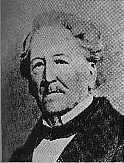
Orangism (Luxembourg)
Encyclopedia

- For other movements of this name, see Orangism (disambiguation).
Orangism was a movement in the 19th century Grand Duchy of Luxembourg
Luxembourg
Luxembourg , officially the Grand Duchy of Luxembourg , is a landlocked country in western Europe, bordered by Belgium, France, and Germany. It has two principal regions: the Oesling in the North as part of the Ardennes massif, and the Gutland in the south...
favouring the personal union
Personal union
A personal union is the combination by which two or more different states have the same monarch while their boundaries, their laws and their interests remain distinct. It should not be confused with a federation which is internationally considered a single state...
of the Netherlands
Netherlands
The Netherlands is a constituent country of the Kingdom of the Netherlands, located mainly in North-West Europe and with several islands in the Caribbean. Mainland Netherlands borders the North Sea to the north and west, Belgium to the south, and Germany to the east, and shares maritime borders...
and Luxembourg under the House of Orange-Nassau
House of Orange-Nassau
The House of Orange-Nassau , a branch of the European House of Nassau, has played a central role in the political life of the Netherlands — and at times in Europe — since William I of Orange organized the Dutch revolt against Spanish rule, which after the Eighty Years' War...
. Made up of many notable figures, mainly nobles and Roman Catholic clergy, they were moderate liberals or conservative-liberals and slightly anti-clerical. At first they favoured maintaining the Grand Duchy's autonomous status and, especially during the Belgian Revolution
Belgian Revolution
The Belgian Revolution was the conflict which led to the secession of the Southern provinces from the United Kingdom of the Netherlands and established an independent Kingdom of Belgium....
, opposed it being merged into Belgium
Belgium
Belgium , officially the Kingdom of Belgium, is a federal state in Western Europe. It is a founding member of the European Union and hosts the EU's headquarters, and those of several other major international organisations such as NATO.Belgium is also a member of, or affiliated to, many...
. In the end the western part of the Grand Duchy (the present province of Luxembourg) passed to Belgium, whilst the eastern part and the Orange grand duchy continued as an independent state. In 1890 the heads of the House of Orange were grand dukes of Luxembourg, but on the death of king and grand duke William III
William III of the Netherlands
William III was from 1849 King of the Netherlands and Grand Duke of Luxembourg until his death and the Duke of Limburg until the abolition of the Duchy in 1866.-Early life:William was born in Brussels as son of William II of the Netherlands and...
in 1890 he was succeeded by his relation Adolphe
Adolphe, Grand Duke of Luxembourg
Adolphe I, Grand Duke of Luxembourg was the last Duke of Nassau, and the fourth Grand Duke of Luxembourg.-Biography:...
as grand duke since Luxembourg's constitution did not allow a woman (Princess Wilhelmina
Wilhelmina of the Netherlands
Wilhelmina was Queen regnant of the Kingdom of the Netherlands from 1890 to 1948. She ruled the Netherlands for fifty-eight years, longer than any other Dutch monarch. Her reign saw World War I and World War II, the economic crisis of 1933, and the decline of the Netherlands as a major colonial...
) to hold the throne. The movement's newsletter was the Journal de la Ville et du Pays Luxembourg.
Members
The movement was led by Gaspard-Théodore-Ignace de la FontaineGaspard-Théodore-Ignace de la Fontaine
Gaspard-Théodore-Ignace de la Fontaine was a Luxembourgian politician and jurist. He led the Orangist movement and was the first Prime Minister of Luxembourg, serving for four months, from 1 August 1848 until 6 December of the same year.His third son, Edmond, better known by his pen name 'Dicks',...
(1787-1871) and other notable members included:
- Jean-Georges and Jean-Jacques Willmar
- Auguste and VictorVictor de TornacoBaron Victor de Tornaco was a Luxembourgian politician. An Orangist, he was the fourth Prime Minister of Luxembourg, serving for seven years, from 26 September 1860 until 3 December 1867....
, barons of Tornaco - Friedrich and Félix, barons of Blochausen
- Charles-Gérard EyschenCharles-Gérard EyschenCharles-Gérard Eyschen was a Luxembourgian politician and jurist. An Orangist, Eyschen served in the cabinet of Charles-Mathias Simons as Director-General for Justice.Born in Baschleiden in 1800, Eyschen became a lawyer...
(father of the later prime minister Paul EyschenPaul EyschenPaul Eyschen was a Luxembourgish politician, statesman, lawyer, and diplomat. He was the eighth Prime Minister of Luxembourg, serving for twenty-seven years, from 22 September 1888 until his death, on 11 October 1915....
) - François-Xavier Wurth-PaquetFrançois-Xavier Wurth-PaquetFrançois-Xavier Wurth-Paquet was a Luxembourgian politician, jurist, and archaeologist. He was elected to represent the canton of Esch-sur-Alzette on the Constituent Assembly, in 1848. An Orangist, he served in the cabinet of Charles-Mathias Simons as Administrator-General for Justice for three...
- Antoine, Jean-Pierre and Ferdinand Pescatore
- Henri VannerusHenri VannérusHenri Vannérus was a Luxembourgian politician, jurist, and diplomat.An Orangist, he twice served as Minister for Justice, in the governments of Victor de Tornaco and Emmanuel Servais...
- Collart von Fischbach
- Willibrord Macher
- Mathieu-Lambert Schrobilgen
- Jean-Pierre Maeysz (Roman Catholic priest)
- Michel-Nicolas Muller (Roman Catholic priest and professor at the Atheneum van Luxemburg)
- Valentin Trausch (Roman Catholic priest)

